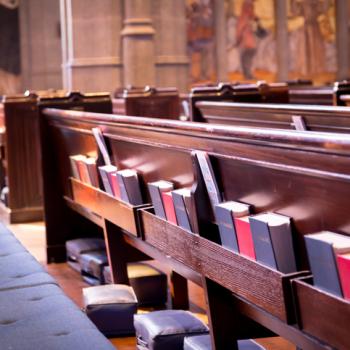
A Simple Proposal
In the wake of the sexual abuse scandal involving Baptist ministers and churches, a logical conundrum emerges: how can Baptist clergy be monitored by a source outside of a local congregation without violating church autonomy? For those who are not familiar with the idiosyncrasies of Baptist life, every Baptist congregation is an autonomous entity. To put is more strongly, each church is completely autonomous. No person or entity outside of the local congregation has any say on who a Baptist congregation ordains, who the congregation calls to be a pastor, or how the congregation oversees a clergy member. For that matter, no person or entity outside a local congregation has any say over what another local congregation might do over any issue whatsoever.
In many other traditions there are denominational structure that oversee local congregations and clergy. In Baptist life, no such structure exists and there is no power to create such a structure. The principle of church autonomy is a core principle of Baptist life, and any process that would violate church autonomy is moribund from the start. So, any process to solve the problem of clergy sexual abuse must protect congregational autonomy as a practical matter and as a theological matter.
As thorny as the issue is, it can be addressed, however. What if there were a group of Baptist ministers who voluntarily created an association? Call it something like the American Association of Baptist Ministers, the name is not important. In order to be a member of such an association, one would have to submit to regular background checks, undergo a comprehensive theological examination to ensure the candidate’s convictions were both orthodox and in keeping with Baptist theology, undergo a psychological examination to prevent those with personality disorders like narcissism from becoming members, and be willing to undergo oversight by the association should a problem emerge.
At first, all of this sounds onerous for the minister. An association, however, could bring many benefits. On top of giving peace of mind to a search committee and opening up job prospects for ministers with membership, such an association could also: advocate for better benefits and wages for the many clergy who are underpaid, assist in calling attention to quality-of-life issues for clergy and clergy families, provide mentoring and counseling for clergy in crisis, speak to Baptist groups on behalf of clergy, and represent Baptist clergy in areas of public discourse.
An association would also be able clear up some of the other weaknesses of the ordination process. Having sat on many ordination councils, I have been struck by how little Biblical and theological knowledge is required for ordination. If a person can present a call narrative in a compelling way, then ordination is most likely going to happen even if the candidate has limited Biblical knowledge and theological depth. Councils tend to value compelling personal narrative and clear vocational calling over most other issues. An interview with other clergy in an association could require more depth than is typically evident in Baptist ordination interviews.
An association would not violate church autonomy as no minister would be compelled to be a member of the association and no congregation would be forced to have an association member on staff. Eventually, though, an association could have weight, and many, if not most, clergy would want to participate. Many, if not most, congregations could eventually want someone with that kind of membership.
I imagine a proposal like this one will have significant detractors. Some will fear creeping authoritarianism of an association like the one I am suggesting. Those fears may be well founded. If this proposal has no merit, however, then what proposal would have merit? Which Baptist leader should be making such proposals? Why have they not yet?
It is most striking to me that despite systematic abuse of church members, particularly young women, there has been a dearth of proposals to prevent abuse. We are simply willing to assume that those seeking ordination are good and the ones who commit sexual abuse become corrupted over time. We assume that the fear of legal punishment will keep clergy from becoming abusers. We assume that disfellowshipping congregations with known sexual abusers on staff is a sufficient response to the issue of sexual abuse. Let’s be honest. Can any of these assumptions survive critical thought? Are any of the responses we have seen so far from Baptist leaders up to the gravity of the issue?
Remember, there are 700 victims of sexual abuse in the SBC that we know of. Isn’t it likely there are more? It would do well for all Baptist leaders to re-read the Chronicle report, examine their conscience, and ask if they have done enough. Our people, our congregations, the reputation of ministers, and the reputation of the Gospel itself is on the line.















